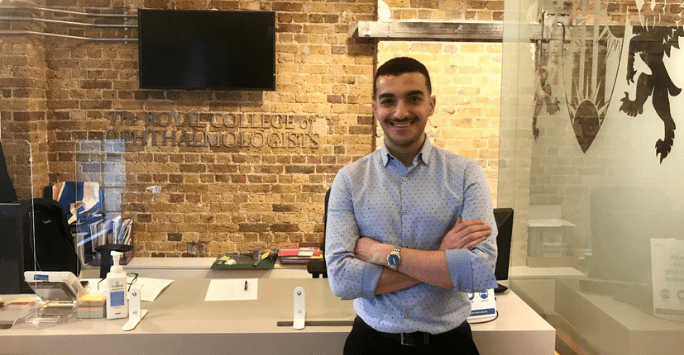
Year Five Student Doctor Faisal Al-Reefy jumped at the opportunity to sharpen his surgical skills at a Royal College of Ophthalmologists course which included handling sutures barely visible to the naked eye. He recommends the learning opportunity to any student doctor who shares his passion for ophthalmology.
"Having set my heart on pursuing a career in ophthalmology quite early on in my studies, I spent a lot of my free time on placement attending eye clinics and theatres. It was during that time when one of the junior doctors suggested I look into the Royal College of Ophthalmologists’ Introduction to Ophthalmic Surgery Skills course.
After doing some research, I felt that the course would offer valuable clinical experience, with an emphasis on practicing technical and procedural skills.
Due to the intricate and highly specialised nature of ophthalmic surgery, I was keen to get involved with a hands-on approach and gain a better understanding of the different surgeries performed, instruments used, and microscopic techniques.
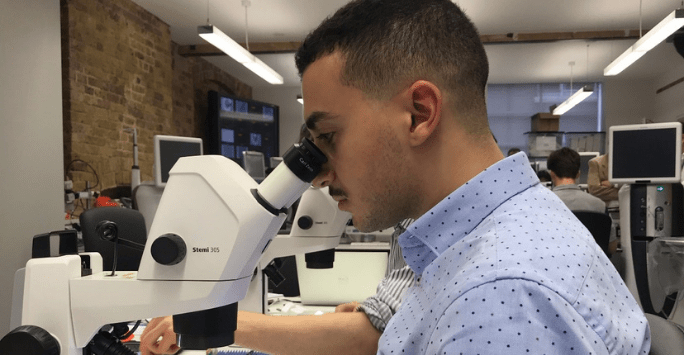 Faisal in action at the Royal College of Ophthalmologists
Faisal in action at the Royal College of Ophthalmologists
This one-day course took place from 9.00 until 17.00 at the Royal College of Ophthalmologists in London. I managed to book a date at the start of my final year. The course takes place on several dates each year, however, spaces are limited and highly sought after so I’d recommend planning and booking ahead.
The day was well organised and had a structured timetable which included brief introductions to several topics in the form of mini-lectures, followed by live demonstrations and ample time to practice the skills. We covered a comprehensive range of topics including surgical instruments, basic knot tying and suturing (including Reef knot, Surgeon’s knot, and butterfly sutures), eyelid suturing techniques, strabismus surgery, creating corneal incisions and closing corneal wounds.
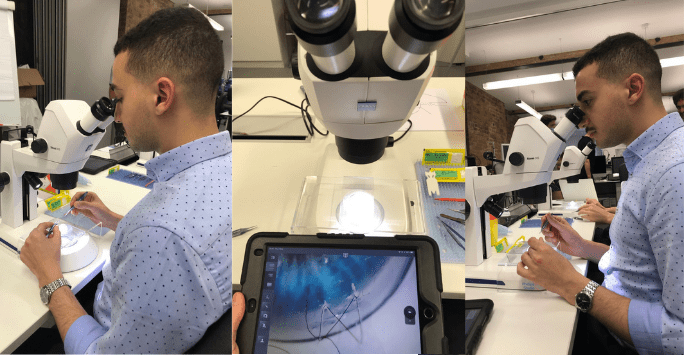 A butterfly suture used to close a corneal incision - seen on iPad magnified under microscope
A butterfly suture used to close a corneal incision - seen on iPad magnified under microscope
The course was run by leading consultant ophthalmologists from all over the UK who were very passionate about teaching and provided thorough live demonstrations as well as one-to-one supervision and guidance while practicing the skills on cutting-edge model eyes.
I was allocated time to use the EYESi cataract surgery simulator which allowed me to become more familiar with the surgical steps and fine techniques involved in cataract surgery.
The ability to practice surgical skills such as suturing under a microscope (using sutures that are barely visible to the naked eye!) proved challenging but was invaluable to developing my hand-eye coordination skills.
As part of the course, I was given access to a delegates handbook and several online e-learning modules, which had to be completed as a prerequisite. I found that they provided a good knowledge base into the basic principles of surgical techniques, functioning of the microscope, and challenging topics, which I found particularly useful before attending the course.
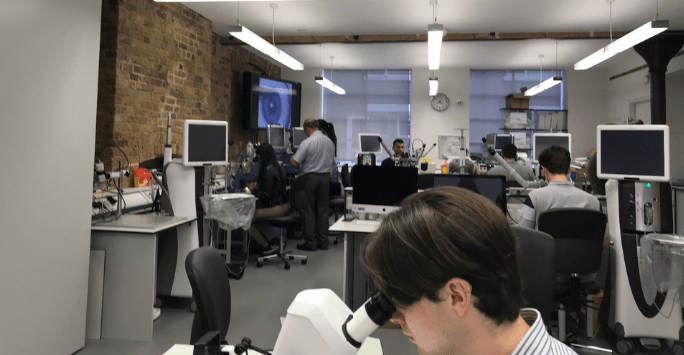 The skills lab at the Royal College of Ophthalmologists
The skills lab at the Royal College of Ophthalmologists
Overall, I would recommend the Introduction to Ophthalmic Surgery Skills course to any student doctor interested in ophthalmology.
Not only did it heighten my interest in the field, I was able to consolidate my knowledge and learn new transferrable surgical skills.
The course provided an opportunity for hands-on learning and built my confidence with operating microscopes and performing various suturing techniques. It gave me a new-found appreciation for the art that is ophthalmic surgery and a fascination for the complex and meticulous techniques involved in operating on a delicate organ such as the eye.
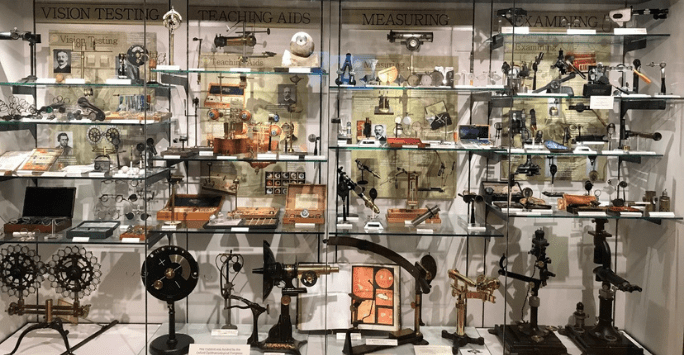 Museum of historic ophthalmic equipment
Museum of historic ophthalmic equipment
As President of the University of Liverpool’s Ophthalmology Society, I hope to bring similar events to student doctors in Liverpool. These include a slit-lamp examination workshop, OSCE masterclasses, a national undergraduate conference, and Duke Elder Examination revision course, all running in the new year."